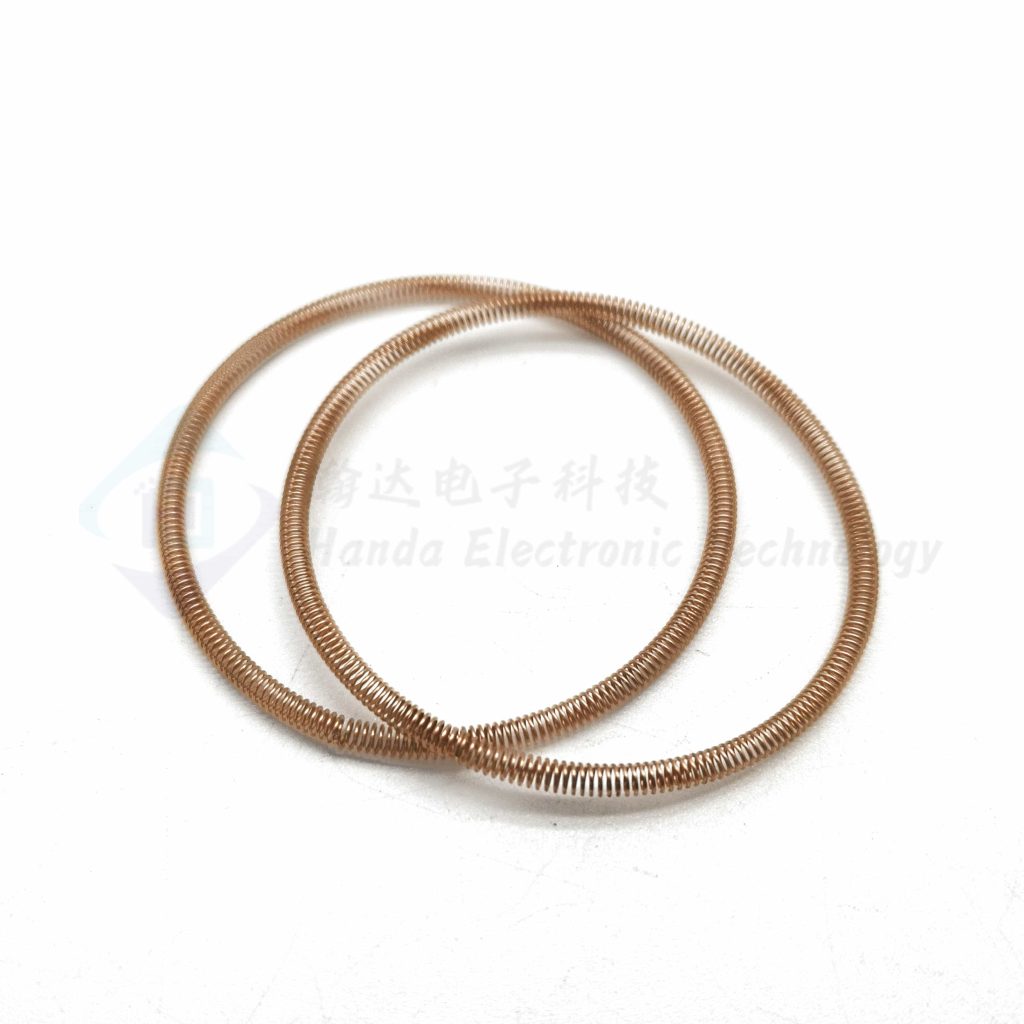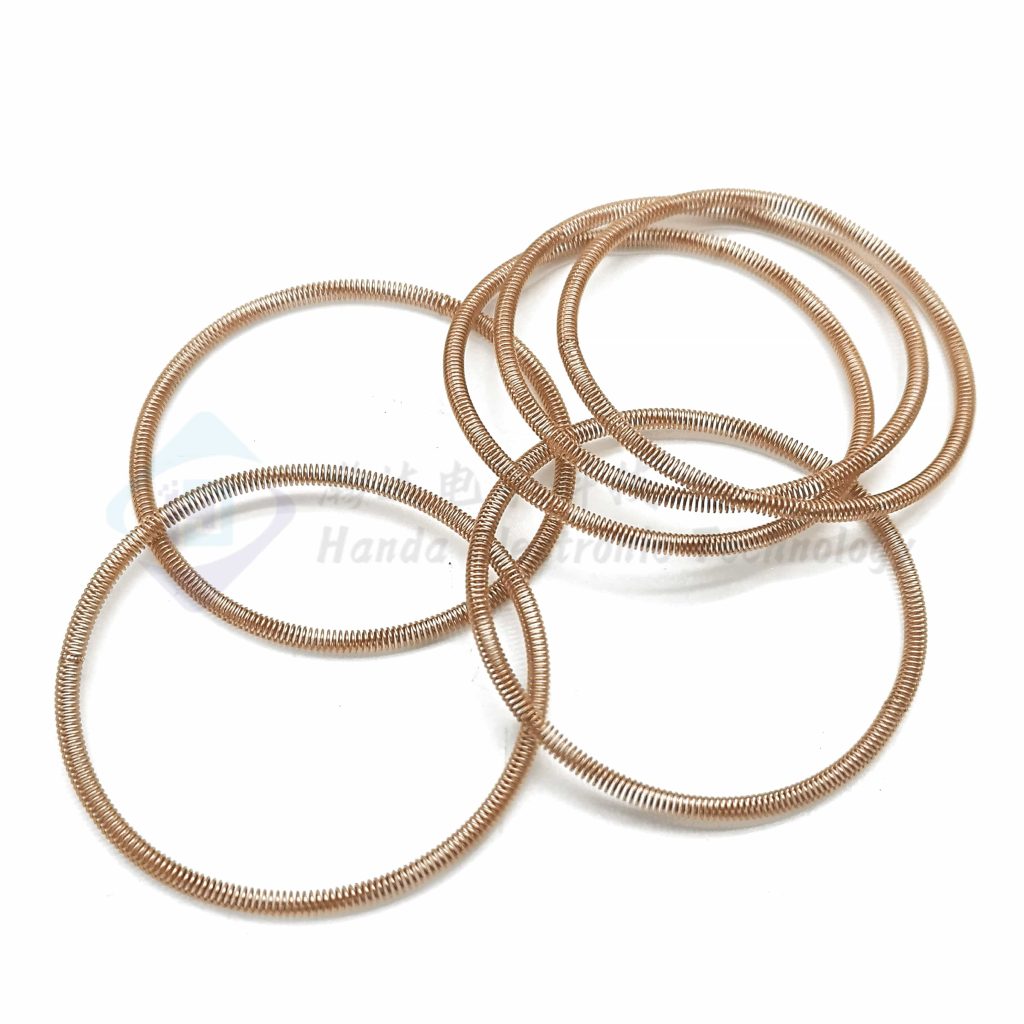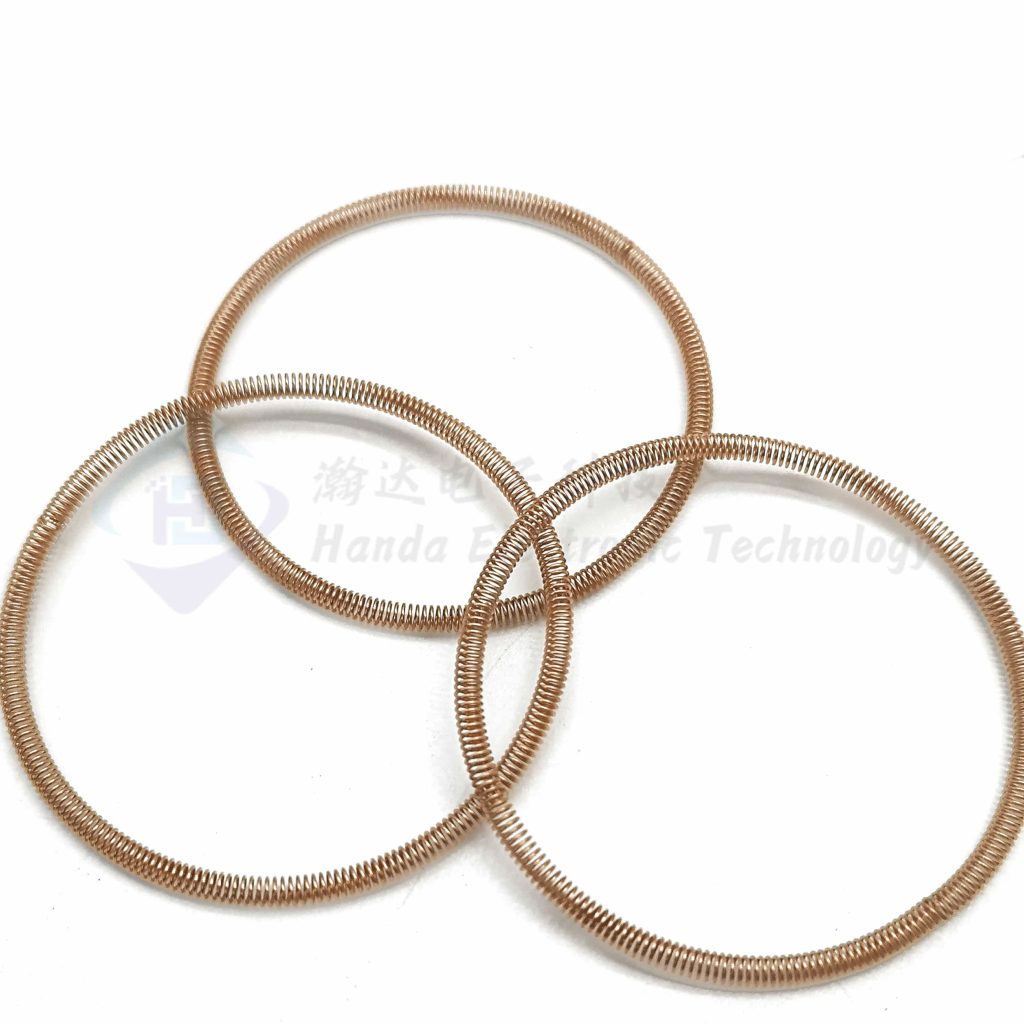
Конические спиральные пружины из бериллиевой меди
Бериллиевая медь пружины со скошенными витками это высокопроизводительные компоненты, сочетающие превосходные механические и электрические свойства бериллиевой меди (BeCu) с уникальными конструктивными преимуществами пружин со скошенными витками. Вот подробный обзор:
Бериллиевая медь (например, сплавы C17200, C17500)
Бериллиевая медь (например, сплавы C17200, C17500) обладает редким сочетанием высокая прочность (прочность на разрыв: 1160-1380 МПа для C17200) и отличная проводимость (22-28% IACS для C17200)
Это делает его идеальным для приложений, требующих как структурной целостности, так и надежных электрических характеристик. Ключевые атрибуты включают:
Пружины со скошенными витками угловые, эллиптические катушки которые обеспечивают многоточечный контакт и практически постоянную силу во всем диапазоне их отклонения
Этот дизайн предлагает:

Обычно используется в следующих случаях:
Такие производители, как Wonder Copper и Bal Seal Engineering, используют холодная намотка (для проводов <8 мм) или горячая намотка (для более толстой проволоки), затем проводится возрастная закалка для оптимизации прочности и эластичности
Варианты настройки включают:

По сравнению с фосфористая бронза, Бериллиевая медь обладает более высокой прочностью (в 1,5-2 раза выше прочность на разрыв) и проводимостью, что делает ее пригодной для использования в мощных приложениях
Однако фосфористая бронза более экономична и лучше подходит для морской среды благодаря своей превосходной стойкости к воздействию соленой воды.
Производители придерживаются таких стандартов, как ASTM B197 (механические свойства) и ASTM B159 (химический состав) для сплавов бериллиевой меди
Медицинские и аэрокосмические приложения часто требуют дополнительных сертификатов (например, ISO 13485, AS9100).

Ведущие поставщики, такие как Ханда специализируются на изготовлении пружин со скошенными витками на заказ, предлагая поддержку в проектировании и быстрое изготовление прототипов.
Например, пружины Handa C17200 используются в высоковольтных распределительных устройствах и медицинских приборах.
В целом, пружины с конической спиралью из бериллиевой меди разработаны для обеспечения надежности в сложных условиях, сочетая в себе превосходство материала и инновационный дизайн. Будь то экранирование электромагнитных помех, электрическое соединение или механическая фиксация, их эксплуатационные характеристики делают их предпочтительным выбором во всех отраслях промышленности. Для конкретных применений консультации с производителями могут обеспечить оптимальный выбор материала и параметров конструкции.